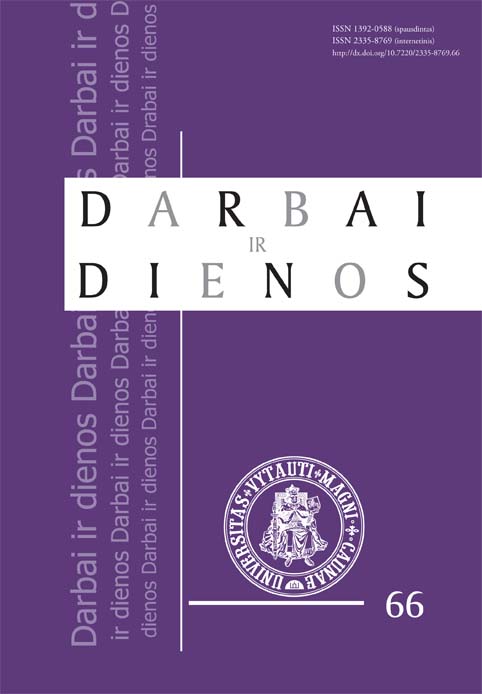Galios metamorfozės: karybos ir iškalbos motyvai XV amžiaus pabaigos – XVI amžiaus pradžios italų literatūroje
Metamorphosis of Power: Armed Warfare and Eloquent Words as Thematic Motifs in Late 15th – Early 16th Century Italian Literature
Author(s): Dainius BūrėSubject(s): Politics / Political Sciences, Language and Literature Studies, Studies of Literature, 15th Century, 16th Century, Philology, Theory of Literature
Published by: Vytauto Didžiojo Universitetas
Keywords: Rhetoric; Armed warfare; Possibilities of power; Eloquence; Violence; Knight;Orator;
Summary/Abstract: The present paper deals with rhetoric as an alternative means of power as it is attested to by some examples of Italian literature at the end of the 15th and the first few decades of the 16th century. Discussed are poems which represent a peculiar development of the chivalric ethos – Matteo Maria Boiardo’s Orlando innamorato (“Orlando in Love”) and Ludovico Ariosto’s Orlando Furioso (“Raging Orlando”) – along with Baldassare Castiglione’s treatise Il Libro del Cortegiano (“The Book of the Courtier”), depicting an ideal courtier as a practical incarnation of polymathia. In Ariosto poem, besides the traditional chivalric ideal, another power motif is thematized, i.e., oratorical skills or wisdom, representing a humanistic actualization of the ancient topos of fortitudo et sapientia. The power of oratorical skills or verbal influence in this poem is, however, rather ambivalent, the oratory being rather frequently looked down upon as a weapon of the weak. On the other hand, Castiglione’s Il Libro del Cortegiano, written in the literary form of a dialogue, is an original adaptation of Cicero’s ideas (as expressed mainly in De oratore): rhetoric goes beyond the merely verbal expression of a consummate courtier and establishes itself as a behavioral strategy of being/appearing in the social environment. The paper also takes into consideration developments and implications of such rhetorical ideas of the early 16th century for modern times.
Journal: Darbai ir dienos
- Issue Year: 2016
- Issue No: 66
- Page Range: 199-209
- Page Count: 11
- Language: Lithuanian

